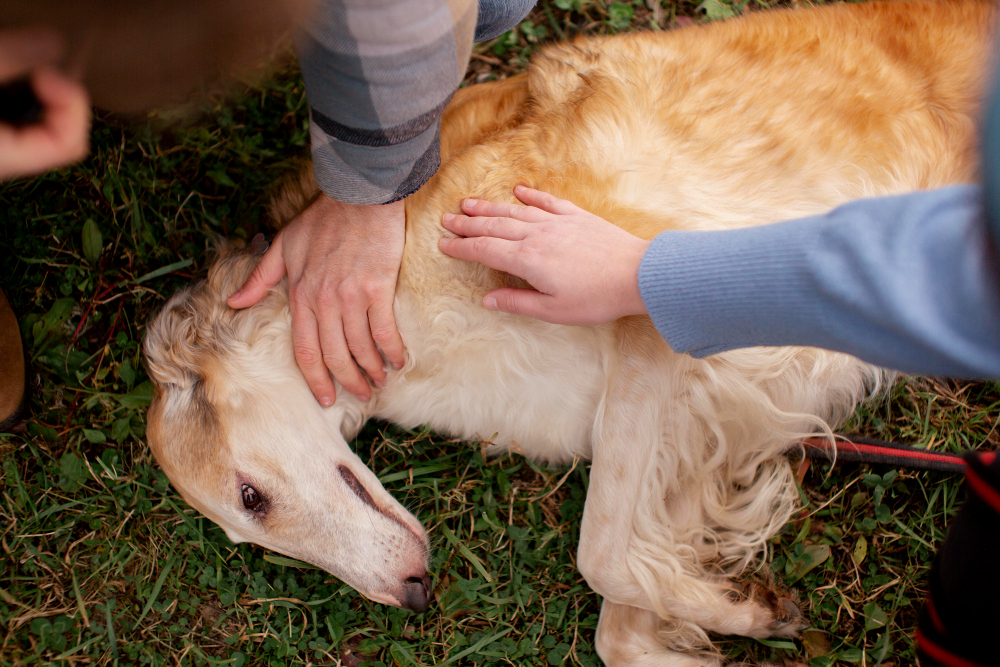Knowing When It’s Time: A Guide to In-Home Euthanasia

Knowing When It’s Time: A Guide to In-Home Euthanasia

Deciding when it's time to say goodbye to your beloved pet can be one of the most challenging decisions you’ll face as a pet owner. It's an emotionally charged process that requires you to weigh your pet's quality of life against the desire to keep them with you as long as possible. Many pet owners in Jupiter, FL, are opting for in-home euthanasia as a way to make this final farewell as peaceful and comfortable as possible for their pets. In this guide, we'll explore what in-home euthanasia entails, how to determine if it's the right choice for your pet, and what steps you can take to ensure a compassionate and dignified experience.
Understanding In-Home Euthanasia
In-home euthanasia provides a more personal and less stressful environment for both pets and their owners. Unlike a clinical setting, your pet remains in the comfort of their familiar surroundings, surrounded by loved ones. This can significantly reduce anxiety and fear during their final moments.
During in-home euthanasia, a veterinarian visits your home to perform the procedure. They are equipped to handle every aspect of the euthanasia process, ensuring it is as humane and painless as possible. This allows you to focus entirely on comforting your pet without the added pressure of logistics and travel.
Benefits of In-Home Euthanasia
- Comfort and Familiarity:
- Pets often experience anxiety in unfamiliar places. Being at home allows them to relax in their favorite spots, bringing peace during their final moments.
- Reduced Stress for Owners:
- You won’t have to worry about transporting your pet or dealing with other animals and people at a clinic. Instead, you can devote your energy to saying goodbye.
- Privacy:
- In-home euthanasia provides a private space where you can grieve and process emotions without feeling rushed or exposed.
- Family Involvement:
- The whole family can be present, providing comfort to each other and ensuring everyone has a chance to say farewell.
Knowing When It's Time
Making the decision for euthanasia is deeply personal and varies for each pet and family. Here are some considerations to help guide you:
Quality of Life
- Pain and Discomfort:
If your pet is experiencing chronic pain that cannot be managed effectively with medication, it may be time to consider euthanasia. Look for signs such as limping, whimpering, or changes in behavior.
- Appetite Loss:
A significant decrease in appetite can indicate declining health. If your pet frequently refuses food and water, it may be a sign they are struggling.
- Mobility Issues:
Difficulty standing, walking, or moving around can severely impact your pet's quality of life. Consider their ability to move comfortably and maintain their dignity.
- Breathing Difficulties:
Labored breathing, persistent coughing, or wheezing can be signs that your pet is in distress and may not have much time left.
Emotional Well-being
- Behavioral Changes:
Consider whether your pet is still engaging in activities they once enjoyed. Withdrawal from social interaction or lack of interest in playtime can indicate emotional decline.
- Mental Cognition:
Consider whether your pet seems confused, disoriented, or unable to recognize familiar people or places. Cognitive decline can be distressing for both pets and their owners.
How to Prepare for In-Home Euthanasia
Discuss with Your Veterinarian
Engage in an open dialogue with your veterinarian about your pet's condition and quality of life. They can provide valuable insights and help you understand your options. If you’re in Jupiter, FL, contact Rover Veterinary Care to discuss your pet’s health status and determine if in-home euthanasia is appropriate.
Plan for the Day
- Choose a Time and Place:
Pick a specific time and choose a location within your home where your pet feels most comfortable. This could be their bed, favorite chair, or a sunny spot by the window.
- Create a Calming Atmosphere:
Consider lighting candles, playing soft music, or having their favorite toys and blankets nearby to create a soothing environment.
- Surround with Love:
Invite close family members or friends who have been part of your pet’s life to be present.
What to Expect During the Procedure
The veterinarian will begin by explaining the procedure to you, answering any questions, and making sure you are comfortable with each step. They will administer a sedative to help your pet relax. Once your pet is peacefully sedated, the euthanasia drug is administered, leading to a painless passing.
Aftercare and Memorializing Your Pet
Physical Remembrance
- Cremation or Burial:
Decide whether you would prefer cremation or burial for your pet. Many veterinary services offer cremation options and can return your pet's ashes in a keepsake urn.
- Memorialization:
Consider creating a photo album, artwork, or planting a tree in memory of your pet. These tangible reminders can help you cope with grief and celebrate the joy your pet brought to your life.
Emotional Healing
- Support Networks:
Reach out to pet loss support groups or grief counseling services if you need additional support during this difficult time.
- Honor Your Pet’s Legacy:
Consider donating to animal charities or volunteering at a local shelter in your pet’s memory.
Conclusion
Choosing in-home euthanasia in Jupiter, FL, is a compassionate way to honor your pet's life and make their transition as peaceful as possible. If you're considering this option, Rover Veterinary Care is here to support you through every step of the process. Remember, you are not alone—our team is committed to providing compassionate care and guidance during this emotional time. Contact us today for more information and to discuss your pet's needs.
